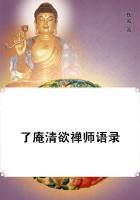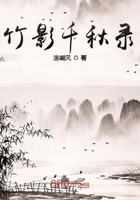There were also one or two portraits of fathers and grandmothers, and an engraving of John Stuart Mill, after the picture by Watts.
It was a room without definite character, being neither typically and openly hideous, nor strenuously artistic, nor really comfortable.
Rachel roused herself from the contemplation of this familiar picture.
"But this isn't very interesting for you," she said, looking up.
"Good Lord!" Hewet exclaimed. "I've never been so much interested in my life." She then realised that while she had been thinking of Richmond, his eyes had never left her face. The knowledge of this excited her.
"Go on, please go on," he urged. "Let's imagine it's a Wednesday.
You're all at luncheon. You sit there, and Aunt Lucy there, and Aunt Clara here"; he arranged three pebbles on the grass between them.
"Aunt Clara carves the neck of lamb," Rachel continued.
She fixed her gaze upon the pebbles. "There's a very ugly yellow china stand in front of me, called a dumb waiter, on which are three dishes, one for biscuits, one for butter, and one for cheese.
There's a pot of ferns. Then there's Blanche the maid, who snuffles because of her nose. We talk--oh yes, it's Aunt Lucy's afternoon at Walworth, so we're rather quick over luncheon. She goes off.
She has a purple bag, and a black notebook. Aunt Clara has what they call a G.F.S. meeting in the drawing-room on Wednesday, so I take the dogs out. I go up Richmond Hill, along the terrace, into the park. It's the 18th of April--the same day as it is here.
It's spring in England. The ground is rather damp. However, I cross the road and get on to the grass and we walk along, and I sing as I always do when I'm alone, until we come to the open place where you can see the whole of London beneath you on a clear day.
Hampstead Church spire there, Westminster Cathedral over there, and factory chimneys about here. There's generally a haze over the low parts of London; but it's often blue over the park when London's in a mist. It's the open place that the balloons cross going over to Hurlingham. They're pale yellow. Well, then, it smells very good, particularly if they happen to be burning wood in the keeper's lodge which is there. I could tell you now how to get from place to place, and exactly what trees you'd pass, and where you'd cross the roads.
You see, I played there when I was small. Spring is good, but it's best in the autumn when the deer are barking; then it gets dusky, and I go back through the streets, and you can't see people properly; they come past very quick, you just see their faces and then they're gone--that's what I like--and no one knows in the least what you're doing--"
"But you have to be back for tea, I suppose?" Hewet checked her.
"Tea? Oh yes. Five o'clock. Then I say what I've done, and my aunts say what they've done, and perhaps some one comes in:
Mrs. Hunt, let's suppose. She's an old lady with a lame leg.
She has or she once had eight children; so we ask after them.
They're all over the world; so we ask where they are, and sometimes they're ill, or they're stationed in a cholera district, or in some place where it only rains once in five months. Mrs. Hunt," she said with a smile, "had a son who was hugged to death by a bear."
Here she stopped and looked at Hewet to see whether he was amused by the same things that amused her. She was reassured. But she thought it necessary to apologise again; she had been talking too much.
"You can't conceive how it interests me," he said.
Indeed, his cigarette had gone out, and he had to light another.
"Why does it interest you?" she asked.
"Partly because you're a woman," he replied. When he said this, Rachel, who had become oblivious of anything, and had reverted to a childlike state of interest and pleasure, lost her ******* and became self-conscious. She felt herself at once singular and under observation, as she felt with St. John Hirst. She was about to launch into an argument which would have made them both feel bitterly against each other, and to define sensations which had no such importance as words were bound to give them when Hewet led her thoughts in a different direction.
"I've often walked along the streets where people live all in a row, and one house is exactly like another house, and wondered what on earth the women were doing inside," he said. "Just consider: it's the beginning of the twentieth century, and until a few years ago no woman had ever come out by herself and said things at all.
There it was going on in the background, for all those thousands of years, this curious silent unrepresented life. Of course we're always writing about women--abusing them, or jeering at them, or worshipping them; but it's never come from women themselves.
I believe we still don't know in the least how they live, or what they feel, or what they do precisely. If one's a man, the only confidences one gets are from young women about their love affairs. But the lives of women of forty, of unmarried women, of working women, of women who keep shops and bring up children, of women like your aunts or Mrs. Thornbury or Miss Allan-- one knows nothing whatever about them. They won't tell you.
Either they're afraid, or they've got a way of treating men.
It's the man's view that's represented, you see. Think of a railway train: fifteen carriages for men who want to smoke.
Doesn't it make your blood boil? If I were a woman I'd blow some one's brains out. Don't you laugh at us a great deal?
Don't you think it all a great humbug? You, I mean--how does it all strike you?"
His determination to know, while it gave meaning to their talk, hampered her; he seemed to press further and further, and made it appear so important. She took some time to answer, and during that time she went over and over the course of her twenty-four years, lighting now on one point, now on another--on her aunts, her mother, her father, and at last her mind fixed upon her aunts and her father, and she tried to describe them as at this distance they appeared to her.















